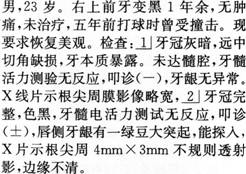共用题干
第三篇
How We Form First Impression
We all have first impression of someone、just met.But why? Why do we form an opinion about someone without really knowing anything about him or her aside perhaps from a few remarks or readily observable traits?
The answer is related to how your brain allows you to be~of the world.Your brain is so sensitive in picking up facial traits,Even very minor difference in how a person'5 eyes,ears,nose,or mouth are placed in relation to each other makes you see him or her as different.In fact,your brain continuously processes incoming sensory information-the sights and sounds of your world.These incoming signals are compared against a host of "memories"stored in the brain areas called the cortex(皮质)system to determine what these new signals"mean".
If you see someone you know and like at school,your brain says"familiar and safe".If you see someone new it says,"new and potentially threatening".Then your brain starts to match features of this stranger with other"known"memories.The height,weight,dress,ethnicity,gestures,and tone of voice are all matched up.The more unfamiliar the characteristics are,the more your brain may say,"This is new.I don ' t like this person ".Or else , " I'm intrigued(好奇的)".Or your brain may perceive a new face but familiar clothes,ethnicity,gestures-like your other friends;so your brain says,"I like this person".But these preliminary"impressions"can be dead wrong.
When we stereotype people,we use a less mature form of thinking(not unlike the immature thinking of a very young child)that makes simplistic and categorical impressions of others.Rather than learn about the depth and breadth of people-their history,interest
values,strengths,and true character-we categorize them as jocks(骗子),peeks(反常的人),or freaks(怪人).
However,if we resist initial stereotypical impressions,we have a chance to be aware of what a person is truly like.If we spend time with a person,hear about his or her life,hopes,dreams,and become aware of the person's character,we use a different,more mature style of thinking-and the most complex areas of our cortex,which allow us to be humane。
Our first impression of someone new is influenced by his or her __________.
A:past experience
B:character
C:facial features
D:hobbies


 正确的诊断是
正确的诊断是 查看材料
查看材料

